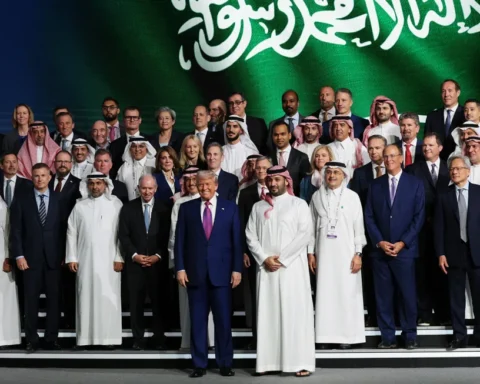Three major elements of his expected Middle East policy are actually subject to bipartisan agreement in a deeply divided Washington.
First is the desire to reduce the U.S. military footprint in the region by ending the so-called endless wars and avoiding new conflicts. Second is the conviction that the dangerous regime in Iran must not be allowed to obtain nuclear weapons. Third is the belief that ensuring the flow of energy from the Gulf is no longer a vital U.S. interest. The by-product of these principles is the conclusion that U.S. policy in the region should be reworked to include more diplomacy and greater burden-sharing.
- Biden and the World – Part 1 Keeping U.S.- China Strategic Competition Under Control
- Biden and the World – Part 2: Opportunities for Africa in a U.S. Diplomatic Reboot
The United States need not remain indefinitely bogged down in costly conflicts, however. At the same time, it should avoid hastily abandoning the region altogether and leaving a power vacuum behind it.
- Biden and the World – Part 3: A Chance for Europe to Pursue Greater Autonomy with U.S. Support
- Biden and the World – Part 4: Biden Can Restore Balance for Democracies
A middle ground is possible in which Washington doubles down on efforts to reinforce pro-American regional security architecture by seeking to build new relationships with its partners, such as expanding the 2020 Abraham Accords to include states such as Saudi Arabia;
- Biden and the World – Part 5: The Challenge of National Reconciliation and Multilateralism
- Biden and the World – Part 6: Biden Knows Central Europe and It Knows Him
mediate ongoing rows between allies, particularly the rift between Qatar and the Arab Quartet (Bahrain, Egypt, Saudi Arabia, and the United Arab Emirates);
- Biden and the World – Part 7: Japan – USA; Renewing International Cooperation
- Biden and the World – Part 8: Lingering Challenges in the U.S.-ASEAN Strategic Partnership
and limit the damage from ongoing conflicts involving allies when immediate and comprehensive resolutions are not forthcoming, including but not limited to that between Israel and the Palestinians. In some instances, Washington may find that efforts to achieve these goals are mutually reinforcing, such as continuing to promote normalization between Israel and Arab states in exchange for Israeli steps that preserve the two-state solution for the future and prevent the slide into an even more hazardous one-state reality.
Amos Yadlin
Director, Institute for National Security Studies (Israel)
Ari Heistein
Research Fellow and Chief of Staff to the Director, Institute for National Security Studies (Israel)






